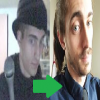Hey folks.
Just wanted to let you know that after many years of trying to treat my severe chronic insomnia, I found something that actually works consistently without causing any significant side effects for me.
It is not a medicine currently offered by doctors.
It is also not available as an over the counter remedy. It must be obtained from a chemical supplier and it has been used as a research drug. You cannot get high off it.
I came to this success only after so much trial and error with other medications and natural "remedies", some doing nothing, others causing much worse effects than they're worth. Most not consistently working for sleep, or, not working for sleep at all and making sleep even worse!
The new discovery I made was one of those "ah, theoretically this might work based on what I know". I knew that 5ht2a agonism increased arousal and could potentially significantly decrease deep sleep. So I searched for a 5ht2a antagonist or inverse agonist that particularly would increase SWS.
First I tried ritanserin. Ritanserin might be good for some people, but, for me it increased anxiety. It has a long half life and instigated some panic attacks in me and mental disorganization THis is probably due to the fact that I already have anxiety , underlying schizo type symptoms , and, happen to be pretty sensitive to dopaminergics. Ritanserin has a dopaminergic component to it- acts as a DARI. For some this could work for dysthymia, perhaps. I wouldn't recommend it based on my experience.
Really, the entire time I wanted to get Nelotanserin (seems to be the best bet based on clinical research), but unfortunately i havent found it easy to procure. My next step on the list was then Eplivanserin. I've been using eplivanserin for about a month and it has significantly helped my sleep. It helps deepen sleep so things don't wake me up. I can also get back into a deep sleep again after I've woken up.
This hasn't fixed my sleep problem 100%, but it is helping a lot. Maybe 60%. That's pretty impressive. There are certain things that are fixed and certain things that aren't. For example I can never sleep more than 4 hrs in one sitting and it still usually takes me some time to fall back asleep. My own insomnia is very persistent but at times it is worse than others. When it is worse, the eplivanserin works a little less, but the fact that it works at all is amazing. It's helping me catch up on the 1000s of hours of sleep I've missed over the years.
My only issue with eplivanserin is 1) I have to order it from an oversease supplier , and I have no idea on the purity nor potency of the product, and 2) in a withdrawal report by this major EU medical committee, it listed that a significant side effect of eplivanserin was DIVERTICULITIS. Though this is a real cause for concern, it occurred in 30 out of 3030 patients (i.e. 1%). Also if I'm understanding the report correctly, it appears that many of these were elderly and that a large percentage of people it occurred in had previous episodes of diverticulitis (before treatment with eplivanserin).
I don't believe I've experienced a single side effect to this day, at least nothing that alarms me. Anyway if you would like more information I am attaching a report. I got it from a specific URL but I think last time I checked it was down, so I'm attaching it. If you'd like to know about possible side effects, check the report (any side effect would occur with much less frequency than hypnotic drugs, and mostly less dangerous, and doesn't effect your cognition the next day. )
I would like anyone with a knowledge of how clinical research works to please comment on this report, and comment on whether you think the diverticulitis concern is a valid concern. To me it seems a valid concern yet at the same time considering the factors I mentioned above maybe it isn't as bad as it seems?? Personally I have not experienced diverticulitis after a month of use, but I always look out for the symptoms, because if a diverticulitis attack does rise, it needs to be treated quickly.
Also for me I'd take that chance considering it's only 1% and I haven't slept for years. :p
Anyway. I haven't seen any evidence that Nelotanserin causes diverticulitis- nor have i seen the same evidence for some other similar 5ht2a antagonists- so at least we're going in the right direction.
Edit: sorry i forgot to add the attachment, now it has been added ..
 EPLIVANSERIN SLIWENS EU EXTENSIVE.htm 279.35KB
17 downloads
EPLIVANSERIN SLIWENS EU EXTENSIVE.htm 279.35KB
17 downloadsEdit #2: forgot to mention that although the diverticulitis concern seemed to be mostly older patients, that this risk did not change across age groups.
Edited by protoject, 21 August 2013 - 05:16 PM.





















































